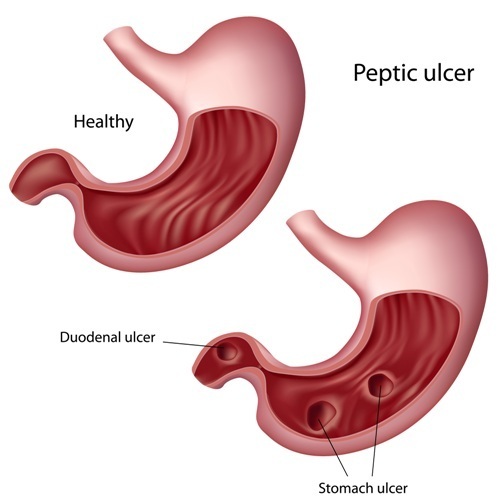Understanding Hypertension in Preparation for the NCLEX Exam
Hypertension, or high blood pressure, is a critical topic for the NCLEX exam and an essential aspect of nursing practice. This blog post will provide a comprehensive overview of hypertension, including its types, pathophysiology, risk factors, symptoms, diagnosis, treatment, and nursing interventions. We’ll also include sample NCLEX questions to aid in your preparation. What is Hypertension? Hypertension is a condition characterized by persistently elevated blood pressure, which puts extra strain on the heart and blood vessels. According to the American Heart Association, hypertension is defined by: Types of Hypertension Pathophysiology Hypertension results from increased resistance in the arterial system, which …
Mastering Peptic Ulcer Disease (PUD) for the NCLEX Exam
Peptic ulcer disease (PUD) is a common gastrointestinal condition that you may encounter in clinical practice, making it an important topic for the NCLEX exam. This blog post will cover the essential aspects of PUD, including its pathophysiology, symptoms, diagnosis, treatment, and nursing interventions. We’ll also include practice questions to help you prepare effectively for the exam. What is Peptic Ulcer Disease (PUD)? Peptic ulcer disease (PUD) refers to the formation of open sores, or ulcers, in the lining of the stomach, duodenum, or esophagus. These ulcers occur when the protective mucosal lining is compromised, allowing gastric acid to erode …
Understanding Anxiety Disorders: A Guide for the NCLEX Exam
Anxiety disorders are among the most common mental health conditions that nurses encounter. For the NCLEX exam, understanding the different types of anxiety disorders, their symptoms, and appropriate nursing interventions is crucial. This blog post provides a comprehensive overview of anxiety disorders and includes practice questions to help you prepare for the NCLEX exam. What Are Anxiety Disorders? Anxiety disorders are a group of mental health conditions characterized by excessive fear, worry, and related behavioral disturbances. These disorders can significantly impair daily functioning and quality of life. The main types of anxiety disorders include: Generalized Anxiety Disorder (GAD) Pathophysiology:GAD is …
Mastering Acute Kidney Injury (AKI) for the NCLEX Exam
Acute kidney injury (AKI) is a critical topic for the NCLEX exam, as it involves understanding the sudden loss of kidney function and its impact on fluid and electrolyte balance. This blog post provides a comprehensive guide to help you prepare for the NCLEX exam by covering the pathophysiology, symptoms, diagnosis, and management of AKI, along with sample NCLEX questions. What is Acute Kidney Injury? Acute kidney injury (AKI), formerly known as acute renal failure, is a sudden decline in kidney function that occurs over hours to days. This condition leads to the accumulation of waste products in the blood, …







